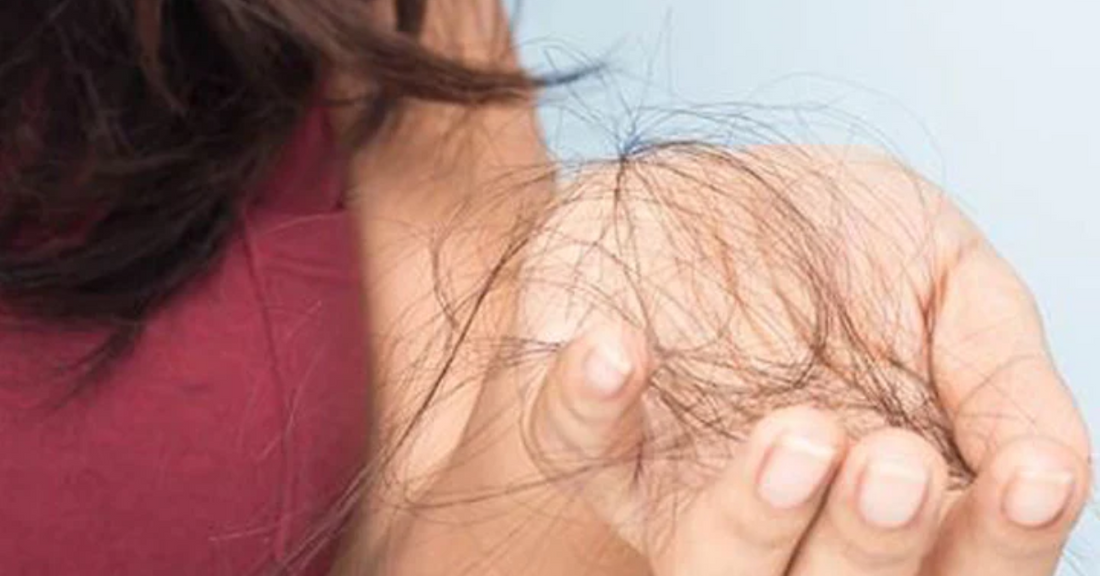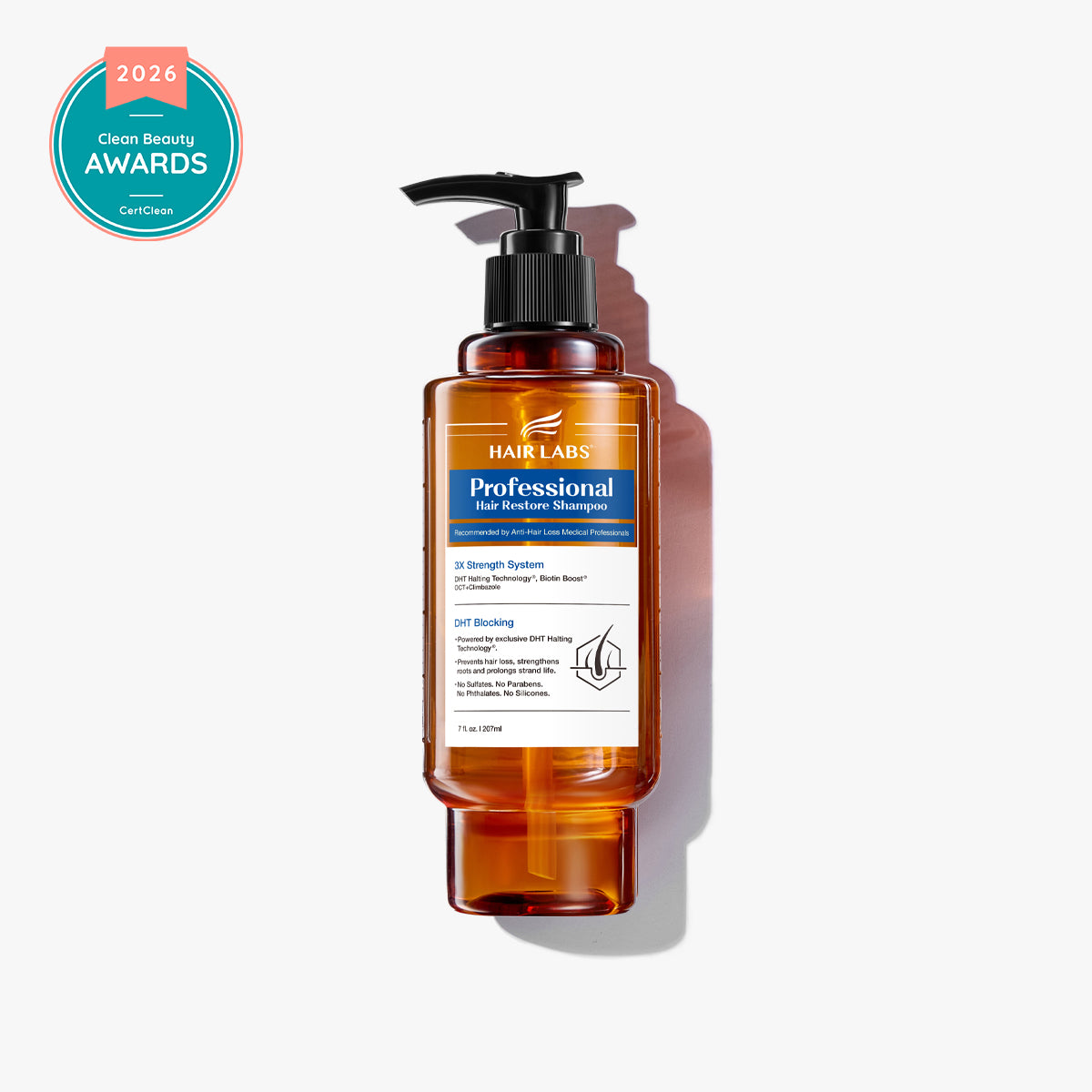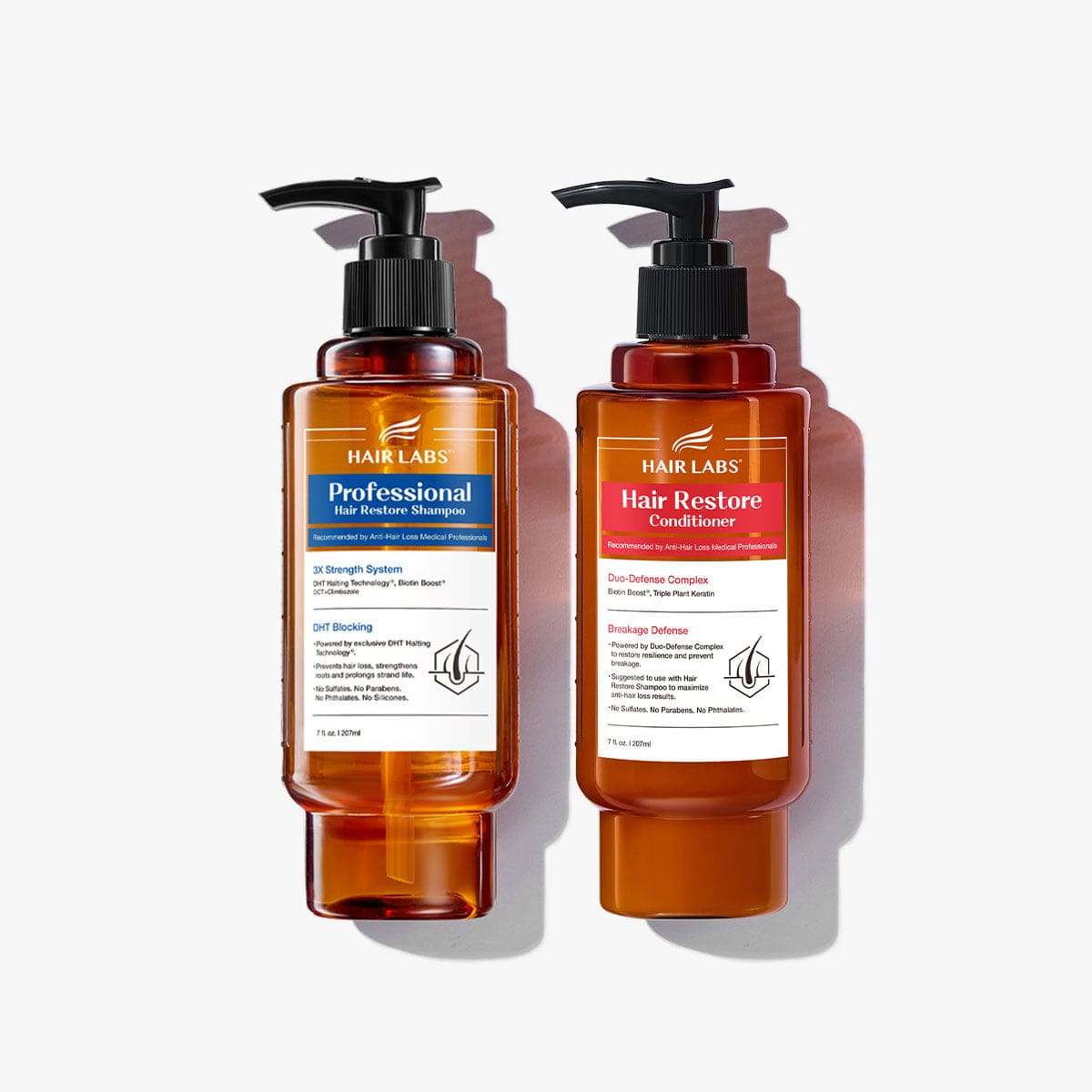Blog
The Top 16 Hair Loss Myths Debunked
Numerous myths have been shared over the years about what causes hair loss, and unfortunately, many people believe them. They panic and wonder why they are still losing their hair?
Learn moreTop 7 Ways To Care For Thinning Hair In The Summer
Summer haircare requires a bit of TLC. Finding the perfect regimen that protects your hair from the harsh realities of extreme heat and temperature swings or seasonal hair loss can be challenging—particularly if you’ve never made a concerted effort to zone in on what it takes to protect those delicate strands!
Learn moreHair Loss--It Is Not Always Genetics
If you are experiencing hair loss and wounded confidence, you are not alone. In fact, many men and women are facing the same degree of frustration and embarrassment. To be more precise, hundreds of millions of others are in the same spot that you are. The great news is, they do not have to simply accept hair loss or thinning, and neither do you.
Learn moreHow Stress Causes Hair Loss
Watching your hair thin or fall out can be quite distressing but, contrary to popular belief, it’s not always due to genetics. Stress can cause your hair to fall out too. Whether it’s illness-related, from the demands of regular life, or a change in circumstances, stress can cause reactions in your body that cause physical issues, such as hair loss. You may not notice the issue right away as it takes the body a few months to show signs of hair loss. And once hair loss begins, it’s hard to stop it as the hair must go through an entire cycle in order to grow back again.
Learn moreWhy Conditioner Should Be Part Of Your Anti-Hair Loss Regimen
We’ve all been there. You’ve jumped into the shower, and you’re looking at the rack of products sitting nearby. Maybe you’re tired or just not in the mood for a five-minute shower. We’ve all been guilty of overlooking our conditioner and thinking that shampoo is enough to clean our hair and get us out the door. The reality is that you need to use these two products in partnership to achieve healthy hair.
Learn moreHow Sleep Deprivation Can Impact Your Hair Health
Sleep, one of your body’s most basic needs, keeps you looking your best. The effects of sleep deprivation can seep into every aspect of your life, including the health of your hair. Poor sleep influences your nutrition, immune system, and your body’s ability to heal and recharge itself. For healthy hair and a healthy you, you need a full seven to nine hours of sleep every night, and we've got some tips to help you out.
Learn moreTop 10 Hair Loss Myths–The Truth Revealed
Unfortunately, there are "hair loss myths" that cause people to make drastic changes to their lifestyles or do weird, expensive and ineffective things to either stop or reverse it. Knowing the truth about why people lose hair can help you realize what does and doesn’t affect your hair’s condition.
Learn moreHow To Care For Thinning Hair
The way you care for thinning hair right out of the shower sets the tone for your hair for the rest of the day. Make it too heavy and you’ll have limp hair, but don’t treat it enough and your hair won’t hold a style. Worse yet, if you use the wrong products or are too hard on your hair, it will break.
Learn moreUnderstanding The Hair Cycle
Even healthy hair grows slowly, and hair loss treatments do not meaningfully speed up the process by much. What they do do is improve the function of your hair follicles, so more follicles will grow thicker hairs in replace of the thinning or non-existent hairs that are on your scalp when you begin treatment.
Learn moreThe Emotional Impact Of Hair Loss
Hair loss is incredibly common and can occur in both males and females as they age. Genetics, medications, health conditions, and many other situations can cause hair loss. It is a slow process and might take several years for someone to notice that their hair is not as healthy as it once used to be.
Learn moreCoronavirus and Hair Loss – What’s the Deal?
Now that we are a few months out from the first patients contracting coronavirus doctors and scientists are seeing unique side effects. Many people, calling themselves the ‘Long Haulers’, have side effects that long outlive the devastating initial effects of the virus. Among those side effects is hair loss. This one has thrown many people for a loop – you’d never expect a respiratory illness to suddenly cause hair loss, but it is for many.
Learn moreTelogen Effluvium – Everything You Need To Know
Did you know a majority of your hair follicles are continually in the phase, called anagen? This means your scalp continually produces new hair. About 10 – 15% of your hair sits in a resting phase called telogen. The resting phase only lasts a short while (no longer than 4 months), while the anagen phase lasts up to four years.
Learn more















